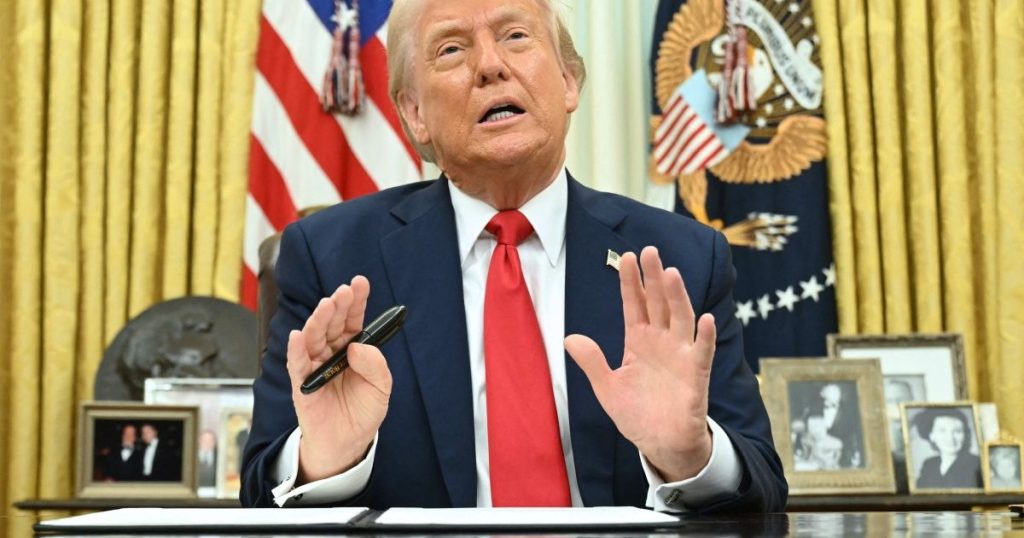The deployment of National Guard troops to Los Angeles in response to protests against immigration raids ignited a fiery debate over executive power, states’ rights, and the militarization of domestic issues. California Governor Gavin Newsom vehemently opposed the deployment, characterizing it as a blatant overreach by the Trump administration and a dangerous escalation of an already tense situation. Newsom formally requested the rescission of the deployment order, arguing that it inflamed tensions and diverted resources from where they were actually needed. He accused President Trump of manufacturing a crisis to justify the deployment, aiming to create chaos rather than restore order. The historical context further fueled the controversy, with experts noting that this marked the first time in six decades a president had deployed a state’s National Guard without the governor’s consent, drawing parallels to President Johnson’s deployment of troops during the Civil Rights Movement in Alabama.
The protests erupted following Immigration and Customs Enforcement (ICE) raids across Los Angeles, part of President Trump’s aggressive push for mass deportations of undocumented immigrants. While Newsom urged protesters to remain peaceful and avoid giving the administration an excuse to further intervene, clashes between protesters and law enforcement ensued. Demonstrators blocked freeways, gathered outside the Metropolitan Detention Center, and engaged in acts of vandalism, including throwing objects at officers and setting cars on fire. The National Guard’s presence, intended to protect federal property and personnel, further heightened the tension and militarized the atmosphere, transforming the city into a contested space between protesters, local authorities, and federal forces.
President Trump, in stark contrast to Governor Newsom’s perspective, portrayed Los Angeles as under siege by “Illegal Aliens and Criminals,” with “violent, insurrectionist mobs” attacking federal agents. He justified the deployment as necessary to “liberate Los Angeles from the Migrant Invasion,” vowing to restore order and expel undocumented immigrants. This rhetoric further exacerbated the divide between the administration and those critical of the immigration raids, framing the protests as an attack on national security rather than an expression of dissent against federal policies. The clashing narratives highlighted the deep political polarization surrounding immigration, with Trump employing inflammatory language to rally his base while opponents accused him of fear-mongering and violating constitutional norms.
Los Angeles Mayor Karen Bass echoed Governor Newsom’s concerns, criticizing the deployment of federal troops as a “chaotic escalation” that amplified fear and put communities at risk. While acknowledging the real fear permeating the city, she urged protesters to remain peaceful, emphasizing the city’s commitment to supporting all its residents. Bass’s stance reflected a delicate balancing act: acknowledging the anxieties fueled by the raids and the federal response while simultaneously calling for calm and peaceful protest. Her appeal underscored the complex dynamics at play, with local leaders caught between supporting their constituents’ right to protest and preventing further escalation of the conflict.
The controversy surrounding the deployment extended beyond the immediate situation in Los Angeles, raising broader constitutional questions about the balance of power between the federal government and individual states. Governor Newsom condemned the threat to deploy U.S. Marines, characterizing it as “deranged behavior” and a dangerous precedent for the use of military force against American citizens on U.S. soil. This stark condemnation reflected a growing unease about the potential for further militarization of domestic law enforcement and the blurring of lines between military and civilian roles. The prospect of Marines being deployed against protesters raised alarms about the potential for excessive force and the suppression of dissent.
Pete Hegseth, the Defense Secretary, defended the deployment of the National Guard, and the potential deployment of Marines if necessary, arguing that they stood with ICE in enforcing federal law. He maintained that while peaceful protest was acceptable, there would be “zero tolerance” for attacks on federal agents. This stance reflected the administration’s hardline approach to immigration enforcement and its willingness to utilize military resources to support its policies. The clash between Governor Newsom’s condemnation of the deployment and Hegseth’s justification highlighted the fundamental disagreement over the appropriateness of military intervention in a domestic law enforcement matter. The debate underscored the broader tension between federal authority and states’ rights, with California asserting its autonomy in managing its own affairs while the Trump administration prioritized its immigration agenda. The deployment of the National Guard to Los Angeles, and the threat to deploy Marines, became a flashpoint in a larger national conversation about the role of the military in domestic affairs, the limits of executive power, and the fundamental rights of protest and dissent.


